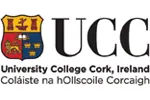

Ireland
University College Cork (UCC)| The award | How you will study | Study duration | Course start | Domestic course fees | International course fees |
|---|---|---|---|---|---|
| MA | Full-time | 1 year | September | find out | 0 |
Overview
This course is designed to provide students with an in-depth knowledge of and practical training in human osteoarchaeology: the analysis of human skeletal remains from archaeological contexts. Teaching focuses on the explanation of theoretical approaches and methods that can be used to address archaeological research questions using human skeletal data. Teaching consists of both lectures and lab-based practical sessions. You will benefit from the fact that the Department of Archaeology has a long tradition of research and teaching in human osteoarchaeology and will have the opportunity to engage in discussions with PhD students and staff, both in the classroom and outside. You will have an active role in shaping your own research project. Thetaught MA in Human Osteoarchaeology is a one-year, full-time, vocationally- orientated course. Thisprovides both a basis for application in the work place and an opportunity for you to continue into PhD research.
Course Details
For the first part of the year, you will be required to attend lectures, seminars, laboratory practicals and fieldtrips for seven modules. You will also choose a 20-25,000-word dissertation topic in consultation with staff. In the second part of the year, you will work on this dissertation for presentation in September.
Modules:
AR6009 Mortuary Theory (5 credits)
AR6011 Biocultural Approaches to Human Remains (5 credits)
AR6012 Palaeopathology Seminar (5 credits)
AR6014 Osteoarchaeology Laboratory (10 credits)
AR6015 Quantitative Methods in Bioarchaeology (5 credits)
AN3006 Regional and Topographical Anatomy (10 credits)
AR6003 Dissertation (45 credits)
On completion of the course, you will be able to:
Details of the programme content and modules are in the Postgraduate College Calendar
Fact File
Course Code: CKE17 Full-time
Course Title: Archaeology - Human Osteoarchaeology
College: Arts, Celtic Studies and Social Sciences
Duration: 1 year Full-time
Teaching Mode: Full-time
Qualifications: MA
NFQ Level: Level 9
Costs: 2017/2018 Irish EU Fee: EUR 6,000 Full-time;
2016 Entry Requirements: You will have an Honours primary Degree, or equivalent, with a minimum of 60% in Archaeology (see detailed entry requirements)
Closing Date: See details in application procedure section below
Next Intake: 11 September 2017
Course Practicalities
The bulk of teaching is carried out in Period 1, when lectures take place each morning, typically from 10am to 1pm. There are also some afternoon classes. One course, Anatomy, is taught over both Periods 1 and 2. All lectures, practicals and occasional field trips are mandatory. You are strongly encouraged to work in the Human Remains Laboratory outside class times throughout the year
Assessment
Taught modules are assessed by a variety of means including essays, in-class practical tests, seminar participation and presentations, laboratory notebooks, and MCQ examination. One course, Anatomy, has a written, end-of-year final exam. Fifty per cent of the total grade for the course is awarded for independent research: the dissertation which is due in mid-September.
Application Procedure
Application for this programme is on-line at www.pac.ie/ucc. Places on this programme are offered in rounds. The closing dates for each round can be found here. For full details of the application procedure click How to Apply.
Please note you will be required to answer specific additional/supplementary questions as part of the online applications process for this programme. A copy of these additional/supplementary questions are available to view here:CKE17AdditionalQuestions (97kB)
Non-UCC applicants must submit evidence of any qualification(s) (academic results and certificates/parchments) that were not completed in University College Cork and evidence of English Language proficiency (if applicable) by UPLOAD via the PAC "Application Status" link or by postto thePostgraduate Applications Centre, 1, Courthouse Square, Galway (marked with your online Postgraduate Application Number)
References are required fromAPPLICANTS who are not a University College Cork Graduate in the last two years. Please supply two letters of reference, one of which should be a previous employer or supervisor of studies.Sealed letters of references should be POSTED directly to the Course Director: Professor William O'Brien, Department of Archaeology, University College Cork, Cork, Ireland.
All suitably qualified applicants willbe required to attend for interview in mid June.
Please note that late applications will be considered after first round applications who meet the selection criteria requirements. Offers will then be made to late applications, if places are still available on the programme and if candidates meet the selection criteria requirements.
2016 Entry Requirements: You will have an Honours primary Degree, or equivalent, with a minimum of 60% in Archaeology (see detailed entry requirements)
Closing Date: See details in application procedure section below
Next Intake: 11 September 2017
Contact University College Cork (UCC) to find course entry requirements.
Below are some suggested courses at other providers that you may also be interested in:
Psychology of the Digital Media Master Degree
Erasmus School of Social and Behavioural Sciences (ESSB), Erasmus University Rotterdam
Find out moreBachelor of Communication / Bachelor of Creative Industries Bachelor Degree
Western Sydney University
Find out moreCareer and Technology Studies: Trades, Manufacturing, and Transportation BEd
University of Alberta
Find out moreIf you do not meet the entry requirements for this course then consider one of these postgraduate preparation courses from another institution:
Graduate Diploma of Engineering (Civil: Structural)
Engineering Institute of Technology
Find out moreThere are 338 other courses listed from University College Cork (UCC). A selection of these are displayed below:
Find out more about studying in Ireland